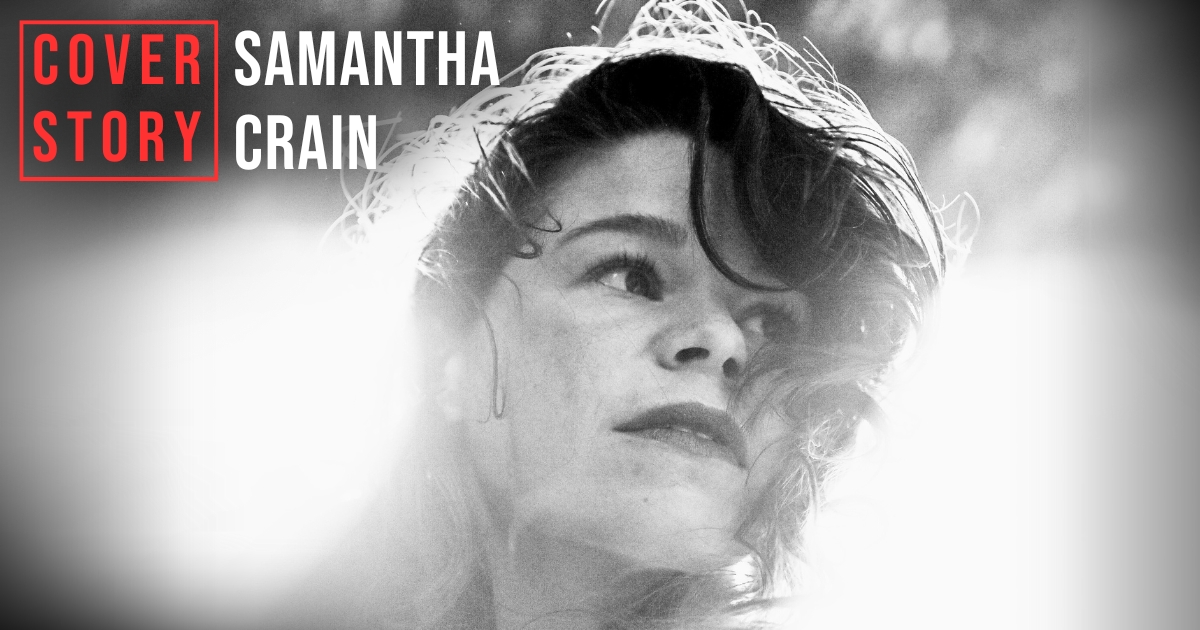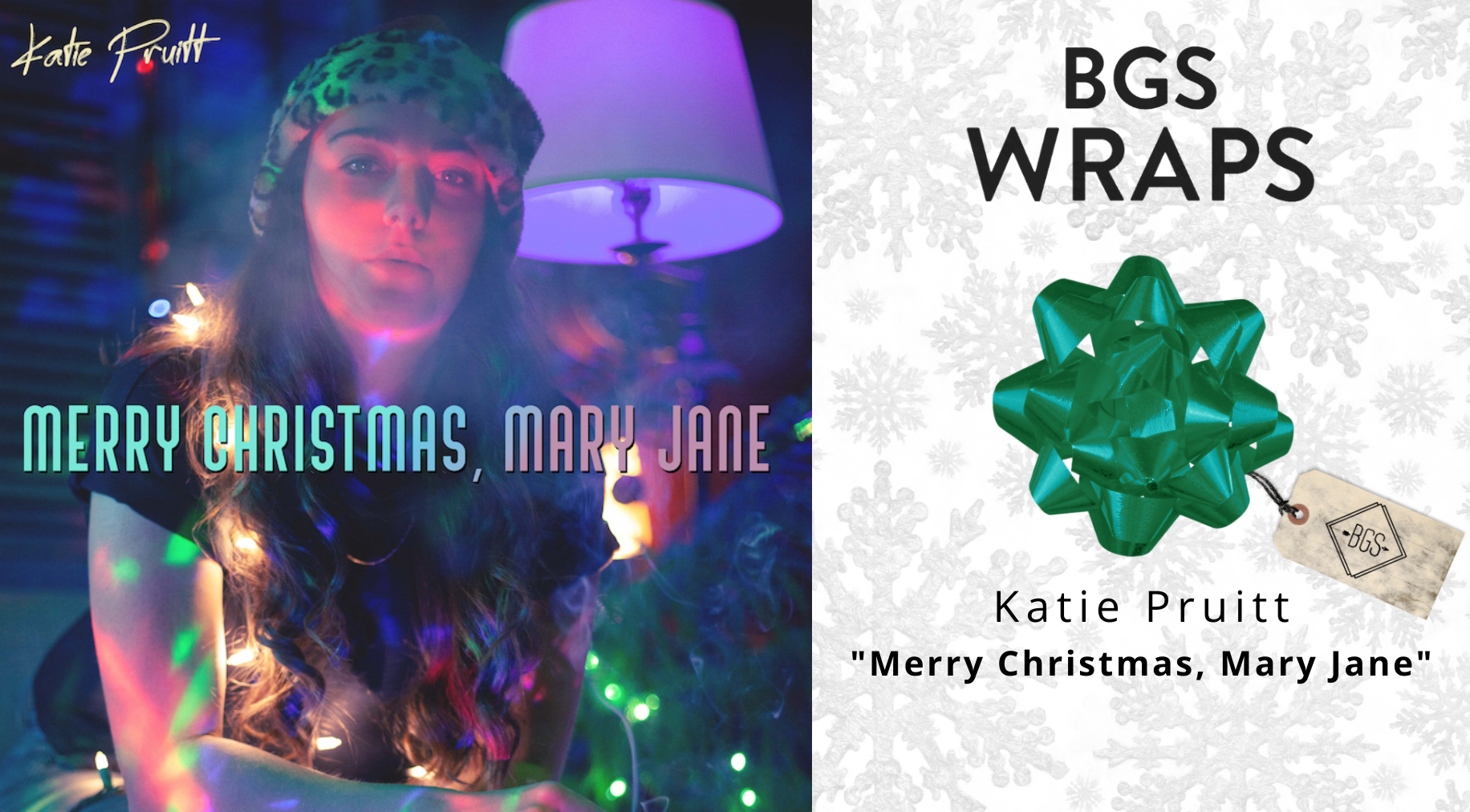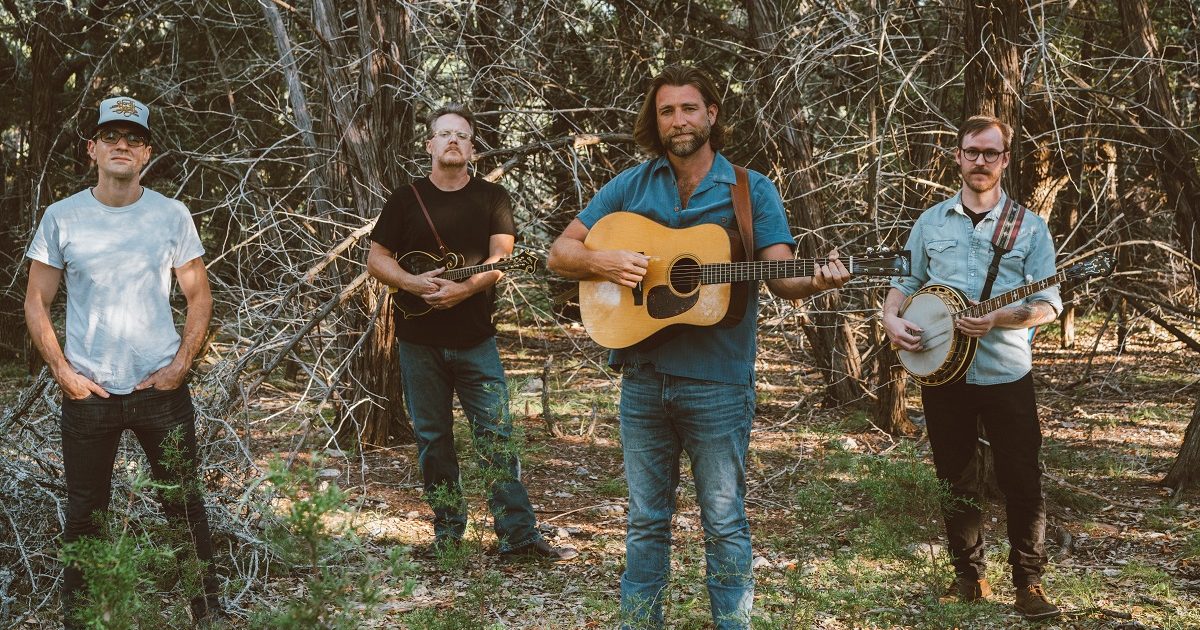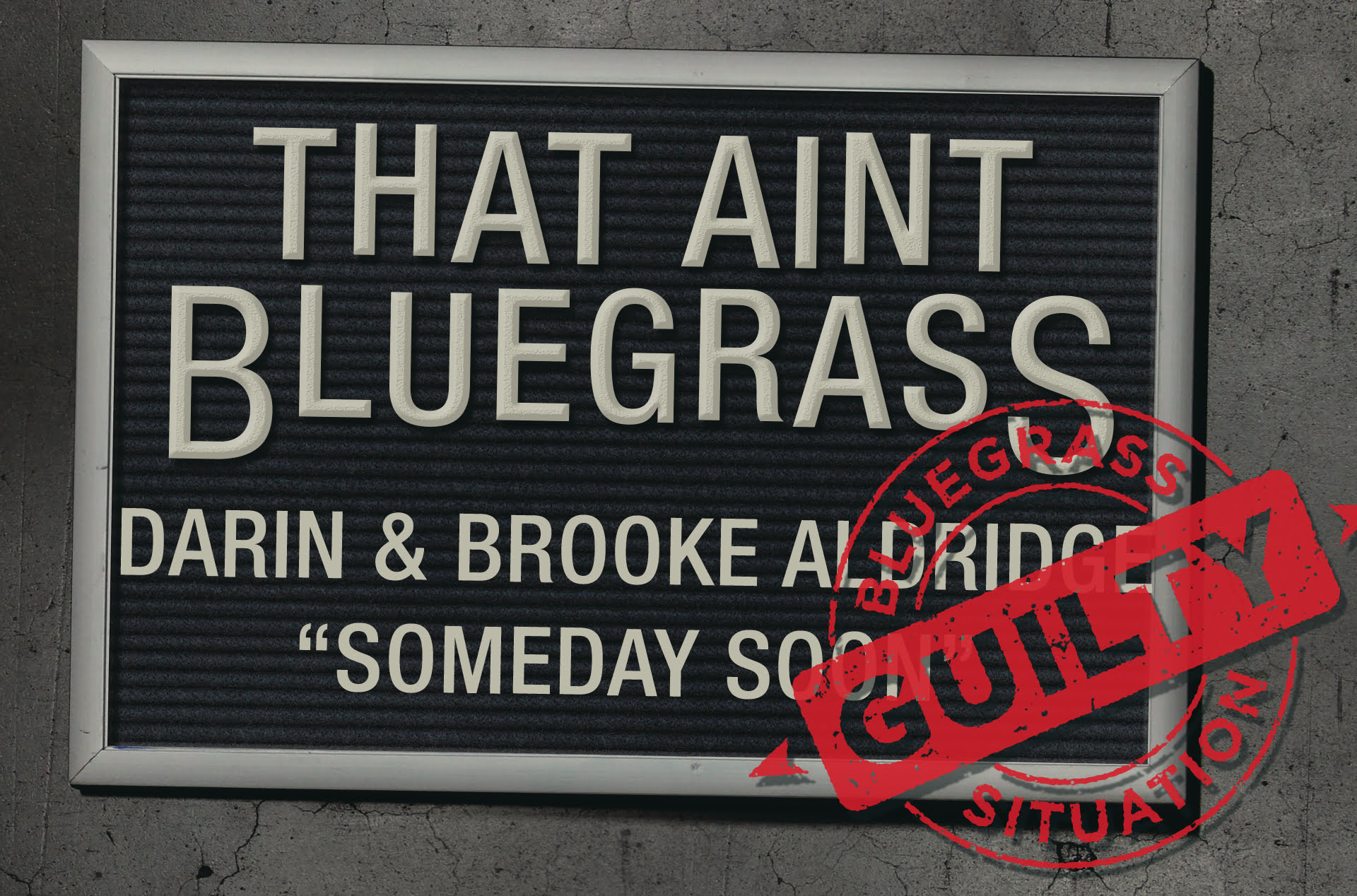Growing up in Oklahoma, Choctaw singer-songwriter Samantha Crain found solace and calm in mid-20th-century film noir, Westerns, and Broderbund Software, Inc.’s cult Where in the World Is Carmen Sandiego? media franchise. Along the way, she developed a soft spot for the vernacular term for a private detective, “gumshoe.”
“I’d always write it in my notebooks, thinking I’d use it one day,” she says.
During her teenage years, Crain taught herself how to play guitar and began writing songs before embarking on a lifestyle on the road as a singer-songwriter, performer, and recording artist as she entered adulthood. Over the last seventeen years, she’s released seven albums and a bevy of EPs, singles, and collaborations, while evading any sense of hard stylistic classification. “Honestly, I don’t know that I have a lot of understanding of genre,” she explains. “I write the songs and then I think about what will serve them best.”
When she was in the early stages of writing her recently released seventh album, Gumshoe, Crain watched American film director John Huston’s storied 1941 mystery thriller, The Maltese Falcon. Afterwards, when she was scribbling down some ideas, she found herself returning to Humphrey Bogart’s portrayal of Sam Spade. “He’s the quintessential, emotionally detached private investigator,” she says. “I can see a lot of that personality in myself.”
From there, Crain felt compelled to write a song about two people with that disposition falling in love. “I immediately thought, maybe this is where I finally get to use gumshoe,” she says. “It became a song about the mystery of trying to solve interpersonal relationships.” Rendered through a dreamy concoction of guitar, percussion, strings, eerie sound design, and her yearning tones, that fact-meets-fiction scenario became the titular track on Crain’s new album.
From using the dragonfly as a metaphor for flexibility and resilience (“Dragonfly”) to exploring her relationship with the natural world (“B-Attitudes”) and revisiting memories that still haunt her, Gumshoe reveals itself as a mercurial blend of alt-country, Americana, breezy psychedelic rock, and close, bedsit folk. It’s one of those records that feels perfectly designed for the introspection of late-night drives, solo walks, or wherever else you find your moments of reflection.
Co-produced with Brine Webb and Taylor Johnson at Lunar Manor Recording Studio in Oklahoma City, the album documents a period of profound transformation within Crain’s personal life and how she relates to those closest to her. In late April, BGS spoke with Samantha Crain about all of the above and more.
How are you doing?
Samantha Crain: Good, yeah. The town I live in has a big free music festival going on right now. It’s always interesting maneuvering your way around town when it’s happening. I’ve spent my morning trying to get things done. This happens every year. I should really know better by now.
To paraphrase the late, great Sharon Jones, some of us have to learn the hard way.
Yeah. That’s probably a good example of most things in my life.
Do you have a philosophical stance that underpins what you do as a songwriter?
I don’t think of what I do as a songwriter as being separate from how I live my life. I’ve spent so much of my life being a lone wolf, very hyper-independent. Lately, I’ve started to explore the ideas of vulnerability and reciprocity within my personal relationships with my friends and family members. I’m trying to embody that there is no “is” and we can change by the minute.
In my ancestor’s language, the Choctaw language, there are no words for “is” or “are.” That speaks to their value. You can’t ever describe anything with certainty. You can only pair something with descriptors that describe it as it appears in a moment. Living in a less defined way feels more mentally and spiritually sustainable. It’s also more sustainable for me as an artist to embody that flexibility and impermanence.
At this point, you’ve been a musician for over half your life, right?
Yeah. Honestly, I have a pretty poor memory of growing up. I’ve got a bad memory in general. I don’t remember much about my life apart from what I’m doing currently.
Lately, I’ve been thinking a bit more about the relationship between someone’s lifestyle and the music they make.
Sometimes I’m very aware that even if I didn’t have this desire and ability to write songs and make records, I’d probably still be living pretty close to how I am now. I have this very deep curiosity in me to experience as much of life as possible while I’m still on this mortal coil. I don’t know that everybody has that same curiosity or desire, and that’s completely fine. I just think I’m lucky to have an outlet and an instigator to justify how I go about living through music and songwriting.
When you think about making Gumshoe, what are some of the first experiences that come to mind?
The first memory I have from this album is having to set an alarm really early in the morning, so I could have quiet time alone and try to be a lightning rod for whatever was awaiting me. I did that every morning for three or four months to make sure I could get the active writing part in. I remember sitting at the kitchen table in the wee hours of the morning with my iPad and my guitar, trying to make demos and get these songs out.
At the same time, I was working forty hours a week at another job and dealing with all these stressful things that kept happening. I’m still slightly surprised that I was even able to make this album, because over the last two or three years of my life, I’ve had a lot of really difficult things going on. I’ve been dealing with health, interpersonal relationships and family stuff. Amidst all that, I had to find a way to answer the call of active writing time, which felt impossible.
I always get fairly offended whenever it’s been a year or two between records and people want to talk about how long it’s been since I’ve had a record. It’s like, “Excuse me, I’ve just been living my life.” I don’t know what to tell you. It hasn’t felt that long to me. I’ve felt like everything is moving right on time.
There can be a level of cross-cultural confusion around what time even means.
Western societies run on capitalism’s watch. What good are you to those societies if you’re not producing something? It’s just not a value I have in my life, so I find it hard to match that energy.
I like that you made the distinction around active writing time earlier. You’ve got to have space for yourself as well. You can’t give everything away.
Not only can you not give everything away, but you can’t constantly be in bloom. Flowers are not constantly in bloom; there’s a good reason for that. There’s energy that has to be sustained through the seasons of life. If you can’t close up and protect that periodically, you’re never going to make anything for anyone else or yourself.
Can you talk a bit more about what you were exploring across the album?
The songs I was writing were me trying to wrap my head around what it means to be in really close relationships with people. This was something I hadn’t really let myself do before. I thought it would be really strange if I wrote all these songs about how I’m trying to get better at connecting, or allowing myself to be vulnerable with other people, and then I went and made it how I usually make records – which is a lot of single tracking, or people that are isolated in their own booths. That led us to all recording together in one big live room. That also led me to bring co-producers in, rather than being the main driver of all the ideas. It was really important for me to have the experience of being able to lean on other people. I just felt like I needed to match what was going on with me personally with the recording process as well.
After listening to the album and talking to you, it sounds like you’ve had a heavy few years.
Nobody can tell you about these experiences ahead of time. There are things you have to live through to understand. You can’t tell an eighteen-year-old that their sense of invincibility is an illusion. You can’t talk someone into having that knowledge. It’s just something they have to live long enough to understand.
Imagine how paralyzing it would be to understand these things at a young age?
I think if I’d had a full idea of what this life path – being a singer-songwriter and musician – would look like at the age I started, I don’t know if I would have done it. Now, I don’t regret any of it. I still wake up every day and choose to keep doing this because I love it, but I think the naivety, greenness, and blind confidence of younger people is a massive help in pushing us off in any sort of direction at all.
What do you think have been the significant turning points in your journey through all of this?
There’s an experience I’ve had that happened many times over the last twenty years. As an artist, you get to a point where you have a set of people helping you: labels, booking agents, managers, etc. Inevitably, people end up moving in a different direction. Every time somebody like that has to leave my circle, I feel like I’m being abandoned in some way. What has always somehow happened afterwards is that I’ve always been able to link up with someone else who helps me keep carrying on.
I am forever in awe of that pattern of feeling that I am in the right place, doing the right thing. I don’t just mean this with business people. I really mean this in life as well. A lot of times, the people who end up helping me in my journey as a songwriter and a musician also play a huge part in my life as friends, mentors or things like that. It really gives me a sense of comfort and trust in myself. If you’ve run out of gas and you’re on the side of the interstate with your thumb out, someone is going to come and help you quicker if you have a smile on your face and a positive attitude about it all.
Some people evoke the idea that you shouldn’t go into business without already having an exit strategy in place. Obviously, not many of them are musicians.
I never have an exit strategy. I’m just forced into the next thing.
It’s worth noting that in recent years you’ve been working on film and television soundtrack projects, such as scoring for Fancy Dance and Winding Path.
When you’re working in film and television, the amount of collaboration you have to do is so intense. It’s beyond any level of collaboration I’ve ever done with my own records. A big portion of making my records occurs in solitude. When you’re scoring films, the number of people you have to pass ideas through, or get the OK from, is massive.
Also, all the films I’ve scored for are about community and family in a way. They’re about connection and reciprocity. So far, they haven’t been about the lone wolf character, which I find good. If my first dip into scoring films had been for a detached, lone wolf character nobody understands, I think I could have gotten a bit too emo for my own good. So, I think it’s good that the projects I’ve been brought into so far have been more about connection.
What does it mean to come from Oklahoma at this point in your journey?
It is to exist somewhere you both can’t live without and can’t wait to return to. At the same time, you want to get as far away from it as possible. That dichotomy is the thing that got me on the road as a young person. I don’t want to only understand this one existence, but it’s also one of the only places where I feel like I make sense. If I were going to grow out of the ground somewhere, this is the only place I could envision myself sprouting out of. Unfortunately, being here reminds me of how hard it has become to be in nature. When I say, be in nature, I don’t mean trying to connect with something outside of myself. I feel like I’m a part of the planet’s ecosystem.
Growing up, I spent a lot of time in southeastern Oklahoma, in the Kayami Street River Valley with my cousins. Even as kids, we were living in a respectful communion. We knew if you saw a diamondback rattlesnake, you don’t mess with that rattlesnake. We were taught to walk softly through the forest and disrupt as little as possible, because we were passing through. I’m still in those same physical spaces, but as I’ve gotten older, knowing I’m becoming more and more disconnected from the natural world feels really strange. I haven’t thought about this much, but maybe this is why I feel this pull to remain here. Maybe it is because I haven’t resolved that, or gotten back to a place that feels right in that aspect of my life.
It sounds like there’s a bigger set of questions at work here. I will say this, though: there’s not much that’s more grounding than walking barefoot on the grass or dirt.
It is. I do it every weekend when I do Tai Chi at the park across from my house.
That’s great. Well, thank you for your time.
Of course. Thank you for yours.
Photo Credit: Sequoia Ziff



